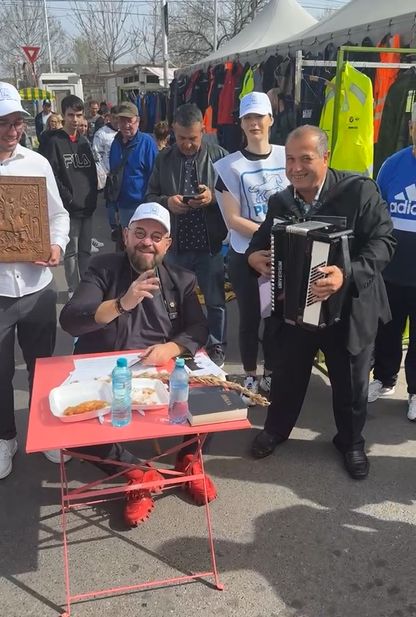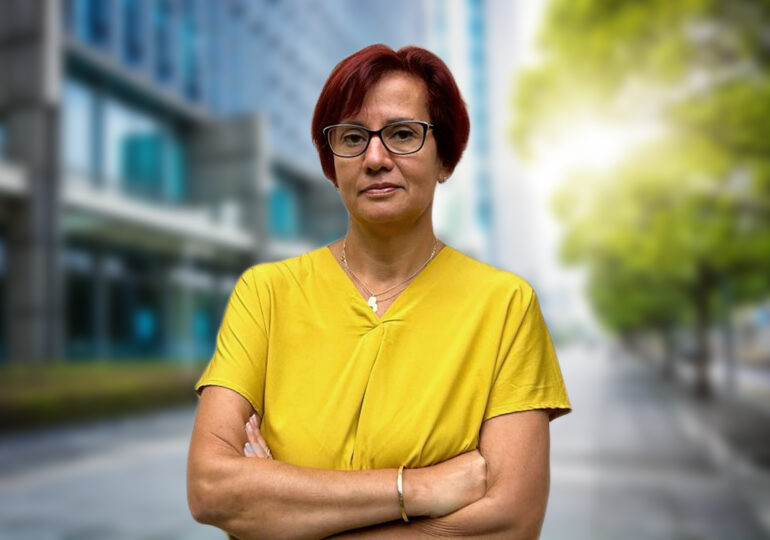The idea that Cristian Popescu Piedone, with garlic hanging around his neck, with striking red shoes, with a crowd of icons and accordions, with his ungrammatical and at times incoherent speech, could become the mayor of the Capital, the dignitary directly voted by the largest number of Romanians after the President of Romania, is hard to accept.
It would probably be the biggest collapse of the electoral standards of Bucharest residents in the last 34 years.

However, the correct solution to this spectrum is not to challenge the polls and block in a bubble, but to try to understand what lies behind this currently very strong phenomenon.
Sure, a part is, as I have said before, the vote of a marginal electorate, in terms of education and geography, of the Capital, with which Piedone communicates very well and who, for the first time, feels represented. But it seems to be more than that.
A few days ago, I was talking to an acquaintance of some young people from Bucharest, educated in London, wealthy, living in the luxury area of Sector 5. Who are they voting for? For Piedone. Why? Because he is constantly present, was the answer.
A few days ago, a friend conducted a small survey in the heart of Bucharest where she lives (and where she suffered frostbite, medically diagnosed, due to the cold in the house in January). 100% of those surveyed are voting for Piedone.
The choice for Piedone is a protest in the broadest sense and, therefore, is very dangerous, including from people who have nothing in common with the CV data, the habits, the exotic character's discourse.
Antiparties
Ironically, Piedone, who is the leader of a party, small, insignificant, but a party with proper documents, is perceived as the independent in this election.
Cătălin Cîrstoiu has behind him a mammoth coalition.
Nicușor Dan is the current mayor, also with a coalition of parties behind him, some of them far from the idea of renewal and reform.
Embraced by politicians from dawn to dusk, the two have lost the non-partisan component.
Antipower and antisystem
Cătălin Cîrstoiu represents the governing parties.
Nicușor Dan is in power in Bucharest, holding the position. Piedone is the rebel who defeated Justice, thus the system, by overturning a final court decision and getting out of prison.
With the exception of, I fear, a minority that believes fundamentally in justice, the Romanian electorate's reference to rule, legality, sanction, is somewhat hypocritical.
Except for those who annoy excessively, like Dragnea, sympathy tends to go more towards those who challenge authority rather than towards the application of the law.
Against the inaccessibility of the elected
All candidates are now hitting the streets, all are kissing puppies and taking a bite of the pie. But until now?
Nicușor Dan has been a rather absent mayor, even the sector mayors complained about the lack of communication.
Mr. Cîrstoiu until about two weeks ago was not even a public figure. And the frustration extends beyond the boundaries of the Capital. It is the frustration generated by the absent and defiant president.
Piedone has the advantage of always being on the street, people know him, it's not an absolute electoral novelty.
And of course, it is an option as a protest against the parties' inability to nurture candidates. Nicușor Dan was initially taken over by USR and PNL, now by ADU, from outside them.
PSD and PNL have not managed in 4 years to form a solid, credible candidate offer. People who should be associated with Bucharest's issues, be established as such, have credibility as such. Piedone is fully associated with the idea of local administration.
Can the current hierarchy be overturned?
Can the Capital be saved from what, from my point of view, represents an immense danger for the next 4 years?
I believe the only key is still with Piedone, more precisely in dosing his populist arsenal. For now, he is exotic, somewhat spectacular, and certainly refreshing for many for the reasons mentioned above.
But it is possible that the stage success could leave him unrestrained, to exaggerate and project with too much clamor and violence the specter of a capital like a traveling fair.
In the end, this could scare, terrify a zone of furious electorate, but one that realizes in time the extent of the collapse and breaks out of the illusion/passivity.

